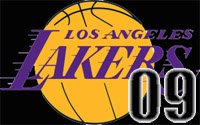A few years ago, I was speaking with one of my friends at Northeastern. This friend happened to play on the NU women's soccer team, and I consider her to be a pretty reliable mind when it comes to soccer. We both agreed that Bob Bradley was a good interim coach, but not a reasonable long term solution for the United States, His penchant for leaving better players on the bench to start games and his inability to run a cohesive offensive strategy meant that the US would improve defensively but tend to struggle, particularly in the first half.
Then the World Cup happened. In every game, the US was outplayed during the first half. During the knockout Ghana game, the team was lucky to have escaped down 1-0, rather than 2- or 3-nil. During the first half, Bradley was forced to make a sub after a terrible lineup decision (starting Clark over Edu) led directly to a turnover and Ghanaian goal. Then, at halftime, he made another switch. That's two of the allotted three subs before the game was 51% complete.
Of course, during the second half, the US looked like a worthwhile team. They applied ball pressure, abandoned their first half policy of kicking the ball the whole way down the field on every possession, and scored a goal on a penalty kick from Landon Donovan. They also missed quality chances, including two one-on-one situations with the Ghana goalie, from Findley and Bradley, both of which would've been US goals with Davies or Buddle.
Jozy Altidore played like crap the whole game, but was left in for the entire 120 minutes because Bradley found himself rather low on substitutes thanks to his terrible lineup decisions. Frankly, I would have replaced Altidore with Buddle after the first 60, maybe after the first half.
The extra time was marked with poor play from the US reminiscent of their usual first half performances, and disgraceful time wasting from the Ghanaians. I have tried to explain the lack of clock stoppage in soccer for years, but I think it's time I'm stopped from having to make bad arguments: the clock needs to stop in soccer, when the ball is out of bounds, when a free kick is being taken, any time a whistle is blown.
Some folks have grown tired of referee bashing over the last few months. It's understandable on both sides, really, as bad calls have become omnipresent in sports media. But it's important to recognize that bad calls are nothing new. What's new is the amount of time and money devoted to sports by fans. When ticket prices are in the thousands of dollars for playoff games, fans have earned the right to see the game called fairly, through use of any supplemental information, including instant replay and RFID-enhanced referee accuracy. It's not that bad calls are ruining every game, because they're not. But if the USA had missed the knockout stage because referees had called back good goals in two of the three games they played, how does that accurately represent the overall skill level of the team? When the Tigers have a fan-supported payroll of $122 million, does it really seem fair that they're denied an obvious perfect game. High payrolls, television contracts, and $125 soccer balls exist for the entertainment of fans, and when bad calls diminish that entertainment, something has to change.
Sunday, June 27, 2010
Subscribe to:
Post Comments (Atom)




No comments:
Post a Comment